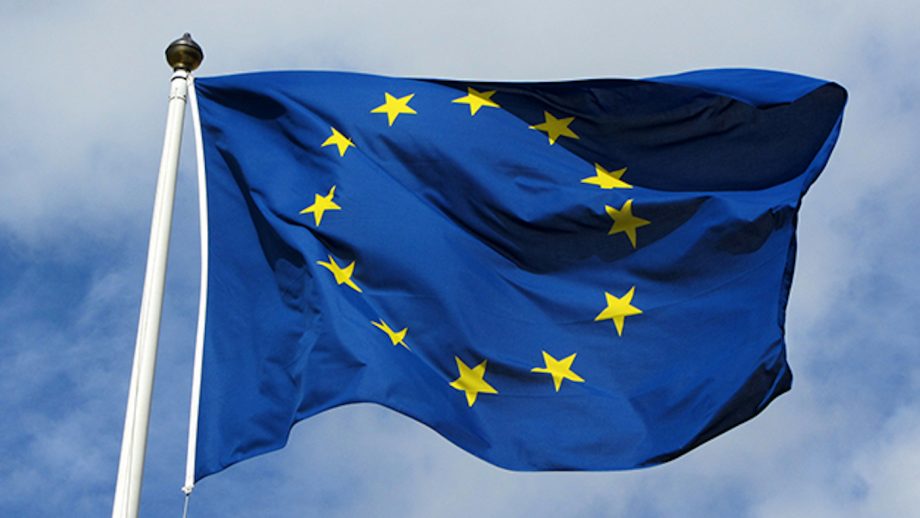Industry experts at the National Equine Forum discussed how Brexit has been affecting business and everyday life, and look at what is being done to mitigate the impact
THE equestrian sector needs to unite to take a cohesive, coherent campaign on the effects Brexit is having on our industry, to UK and EU ministers.
Representatives from across the sector gave presentations on the impact on the sector since the end of the Brexit transition period on 31 December.
{"content":"PHA+PGEgaHJlZj0iaHR0cHM6Ly93d3cuaG9yc2VhbmRob3VuZC5jby51ay90YWcvYnJpdGlzaC1lcXVlc3RyaWFuLXRyYWRlLWFzc29jaWF0aW9uIj5Ccml0aXNoIEVxdWVzdHJpYW4gVHJhZGUgQXNzb2NpYXRpb248L2E+IGV4ZWN1dGl2ZSBkaXJlY3RvciBDbGFpcmUgV2lsbGlhbXMgc2FpZCBsZWF2aW5nIHRoZSBzaW5nbGUgbWFya2V0IGhhcyBoYWQgYSBodWdlIGltcGFjdCBvbiBidXNpbmVzc2VzLjwvcD4KPHA+4oCcRXVyb3BlIGhhcyBiZWNvbWUgYSBtYXJrZXQsIG9yIG1hcmtldHMsIHRvIHdoaWNoIHdlIGZvcm1hbGx5IGV4cG9ydCwgYW5kIGltcG9ydCBmcm9tLCB3aGljaCBkZW1hbmRzIHNraWxsIHNldHMgdG90YWxseSBuZXcgdG8gbWFueSBwZW9wbGUs4oCdIHNoZSBzYWlkLjwvcD4KPHA+4oCcV2UgZGlkbuKAmXQga25vdyB3aGF0IHdhcyBjb21pbmcuIFRoZSBwcm9taXNlIG9mIGEgZGVhbCBtZWFudCBtYW55IGNvbXBhbmllcyBsYXJnZWx5IHB1dCBvZmYgcHJlcGFyYXRpb247IHdpdGhvdXQgZGV0YWlsLCB0aGV5IGRpZG7igJl0IGtub3cgd2hhdCBwcmVjaXNlbHkgdG8gcHJlcGFyZSBmb3IuIFRoZSBkZWFsLCB3ZSB3ZXJlIHRvbGQsIHdvdWxkIG1lYW4gd2Ugd291bGQgYmUgYWJsZSB0byBjYXJyeSBvbiBmcmljdGlvbmxlc3MgdHJhZGUuIEl0IHdhc27igJl0IHRoZSBDaHJpc3RtYXMgcHJlc2VudCBtb3N0IHBlb3BsZSB0aG91Z2h0IGl0IHdhcywgb3Igd291bGQgaGF2ZSB3aXNoZWQgZm9yLuKAnTwvcD4KPHA+PGRpdiBjbGFzcz0iYWQtY29udGFpbmVyIGFkLWNvbnRhaW5lci0tbW9iaWxlIj48ZGl2IGlkPSJwb3N0LWlubGluZS0yIiBjbGFzcz0iaXBjLWFkdmVydCI+PC9kaXY+PC9kaXY+PHNlY3Rpb24gaWQ9ImVtYmVkX2NvZGUtMzEiIGNsYXNzPSJoaWRkZW4tbWQgaGlkZGVuLWxnIHMtY29udGFpbmVyIHN0aWNreS1hbmNob3IgaGlkZS13aWRnZXQtdGl0bGUgd2lkZ2V0X2VtYmVkX2NvZGUgcHJlbWl1bV9pbmxpbmVfMiI+PHNlY3Rpb24gY2xhc3M9InMtY29udGFpbmVyIGxpc3RpbmctLXNpbmdsZSBsaXN0aW5nLS1zaW5nbGUtc2hhcmV0aHJvdWdoIGltYWdlLWFzcGVjdC1sYW5kc2NhcGUgZGVmYXVsdCBzaGFyZXRocm91Z2gtYWQgc2hhcmV0aHJvdWdoLWFkLWhpZGRlbiI+DQogIDxkaXYgY2xhc3M9InMtY29udGFpbmVyX19pbm5lciI+DQogICAgPHVsPg0KICAgICAgPGxpIGlkPSJuYXRpdmUtY29udGVudC1tb2JpbGUiIGNsYXNzPSJsaXN0aW5nLWl0ZW0iPg0KICAgICAgPC9saT4NCiAgICA8L3VsPg0KICA8L2Rpdj4NCjwvc2VjdGlvbj48L3NlY3Rpb24+PC9wPgo8cD5NcyBXaWxsaWFtcyBzYWlkIGV4cG9ydHMgZnJvbSB0aGUgVUsgZXF1ZXN0cmlhbiB0cmFkZSwgZXhjbHVkaW5nIGhvcnNlcyBhbmQgdmVoaWNsZXMsIGFtb3VudCB0byBvdmVyIGhhbGYgYSBiaWxsaW9uIHBvdW5kcyBhIHllYXIsIG92ZXIgaGFsZiBvZiB3aGljaCBpcyB0aG91Z2h0IHRvIGJlIHNvbGQgaW4gRXVyb3BlLiBUaGVyZSBhcmUgYWxzbyBodWdlIHNhbGVzIGZyb20gVUsgYnVzaW5lc3NlcyBpbnRvIEV1cm9wZS48L3A+CjxwPk1zIFdpbGxpYW1zIHNhaWQgY29tcGFuaWVzIGhhdmUgdG8gZGVhbCB3aXRoIGEg4oCcdmFzdOKAnSBhbmQgY29tcGxpY2F0ZWQgYXJyYXkgb2YgZG9jdW1lbnRhdGlvbiB0byBleHBvcnQsIHdoaWNoIGFwcGVhciB0byBleGNlZWQgdGhhdCBuZWVkZWQgdG8gZXhwb3J0IHRvIG90aGVyIGNvdW50cmllcy4gVGhlIG1hcmtldHMgaW4gRXVyb3BlIGhhdmUgZGlmZmVyZW5jZXMsIHN1Y2ggYXMgaW4gVkFUIHJhdGVzIGFuZCBkb2N1bWVudHMgZGVtYW5kZWQsIGFuZCBNcyBXaWxsaWFtcyBzYWlkIHRoZXJlIGhhcyBiZWVuIGNvbmZ1c2lvbiB3aGVuIHBhcGVyd29yayBpcyBkZW1hbmRlZCwgYnV0IG5vdCByZXF1aXJlZCBvciBhdmFpbGFibGUuPC9wPgo8cD5TaGUgd2FybmVkIHRoYXQgZXh0cmEgZHV0eSBpcyBhbiB1bmZvcmVzZWVuIGNvc3QsIGFzIHRoZSB0YXggaXMgbGV2aWVkIG9uIHRoZSB2YWx1ZSBvZiBhIHNoaXBtZW50IHdoZW4gcHJvZHVjdHMgZW50ZXIgdGhlIEVVLCB0aGVuIHdoZW4gc29sZCBvbiB0byB0aGUgVUssIGR1dHkgaXMgbGV2aWVkIGFnYWluIGFzIGlmIGl0IHdlcmUgZW50ZXJpbmcgZnJvbSBhIHRoaXJkIGNvdW50cnkuIElmIGl0IGlzIHNvbGQgdG8gSXJlbGFuZCwgZHV0eSBpcyBsZXZpZWQgZm9yIGEgdGhpcmQgdGltZS48L3A+CjxkaXYgY2xhc3M9ImFkLWNvbnRhaW5lciBhZC1jb250YWluZXItLW1vYmlsZSI+PGRpdiBpZD0icG9zdC1pbmxpbmUtMyIgY2xhc3M9ImlwYy1hZHZlcnQiPjwvZGl2PjwvZGl2Pgo8cD7igJxUaGUgdHJhZGUgaXMgbWVldGluZyB0aGUgY2hhbGxlbmdlcyBhcyBiZXN0IHRoZXkgY2FuLCBhbmQgc2xvd2x5IG92ZXJjb21pbmcgdGhlbSwgYnV0IGl04oCZcyB0YWtpbmcgbG9uZ2VyIHRoYW4gd2UgaW1hZ2luZWQs4oCdIHNoZSBzYWlkLiDigJxTb21lIHNvbHV0aW9ucyBhcmUgYmVpbmcgd29ya2VkIG9uLCBhbmQgZm9yIHRoZSBmdXR1cmUgb2Ygb3VyIHRyYWRlLCBpdOKAmXMgaW1wb3J0YW50IHdlIHBlcnNpc3Qu4oCdPC9wPgo8cD5TaGUgc2FpZCBpdCBpcyBob3BlZCB0aGUgcHJvY2VzcyB3aWxsIGJlY29tZSBlYXNpZXIuIFRoZXJlIGFyZSBhbHNvIOKAnGdsaW1tZXJzIG9mIGxpZ2h0IG9uIHRoZSBob3Jpem9u4oCdLCBhcyBuZXcgdHJhZGUgZGVhbHPigJkgd2lsbCBtZWFuIGFjY2VzcyB0byBvdGhlciBtYXJrZXRzIHN1Y2ggYXMgSmFwYW4uPC9wPgo8ZGl2IGNsYXNzPSJhZC1jb250YWluZXIgYWQtY29udGFpbmVyLS1tb2JpbGUiPjxkaXYgaWQ9InBvc3QtaW5saW5lLTQiIGNsYXNzPSJpcGMtYWR2ZXJ0Ij48L2Rpdj48L2Rpdj4KPHA+SGVucnkgQnVsbGVuLCBkaXJlY3RvciBvZiBQZWRlbiBCbG9vZHN0b2NrLCBzcG9rZSBhYm91dCB0aGUgY2hhbmdlcyB0byA8YSBocmVmPSJodHRwczovL3d3dy5ob3JzZWFuZGhvdW5kLmNvLnVrL3RhZy90cmFuc3BvcnRpbmctaG9yc2VzIj5tb3ZpbmcgaG9yc2VzPC9hPi48L3A+CjxwPuKAnE15IHR3byBsZWFzdCBmYXZvdXJpdGUgd29yZHMgY3VycmVudGx5IGFyZSDigJhDb3ZpZOKAmSBhbmQg4oCYQnJleGl04oCZLOKAnSBoZSBzYWlkLiDigJxUaGF04oCZcyBwcm9iYWJseSB0aGUgc2FtZSBhY3Jvc3MgdGhlIGJvYXJkLuKAnTwvcD4KPGRpdiBjbGFzcz0iYWQtY29udGFpbmVyIGFkLWNvbnRhaW5lci0tbW9iaWxlIj48ZGl2IGlkPSJwb3N0LWlubGluZS01IiBjbGFzcz0iaXBjLWFkdmVydCI+PC9kaXY+PC9kaXY+CjxwPk1yIEJ1bGxlbiBzYWlkIG1vdmluZyBob3JzZXMgdG8gdGhlIEVVIGlzIG5vdyBhIOKAnGJ1cmVhdWNyYXRpYyBoZWFkYWNoZeKAnS48L3A+CjxwPuKAnEl04oCZcyBub3cgY2VydGFpbmx5IG1vcmUgY29tcGxpY2F0ZWQgdG8gdGFrZSBhIGhvcnNlIGZyb20gdGhlIFVLIHRvIHRoZSBFVSB0aGFuIGl0IGlzIHRvIGdvIHRvIHRoZSBVUywgYW5kIGl04oCZcyBtb3JlIHRpbWUtY29uc3VtaW5nLOKAnSBoZSBzYWlkLiDigJxJdOKAmXMgZGVmaW5pdGVseSBtb3JlIHN0cmVzc2Z1bC7igJ08L3A+CjxwPk1yIEJ1bGxlbiBkZXNjcmliZWQgdGhlIG5ldyBwcm9jZXNzZXMgZm9yIG1vdmluZyBob3JzZXM7IHRoZSB2ZXQgY2hlY2tzLCBleHRyYSBwYXBlcndvcmsgYW5kIGRlbGF5cyBhdCBib3JkZXIgY29udHJvbCBwb3N0cywgYXMgcmVwb3J0ZWQgaW4gPGVtPkgmYW1wO0g8L2VtPi4gSG9yc2VzIGhhdmUgYmVlbiBzZW50IGJhY2sgdG8gdGhlIFVLIG93aW5nIHRvIHNsaWdodCBtaXN0YWtlcyBpbiB0aGUgcGFwZXJ3b3JrLjwvcD4KPHA+4oCcVGhlIGJpZ2dlc3QgcHJvYmxlbSBub3cgdGhvdWdoIGlzIG5vdCBvbmx5IGhvcnNlIHdlbGZhcmUgYnV0IHRoZSBtYXNzaXZlIGluY3JlYXNlIGluIGNvc3RzLOKAnSBoZSBzYWlkLiDigJxJdOKAmXMgYWJvdXQgYSA2MDAlIGluY3JlYXNlIG9uIHNvbWUgY3Jvc3NpbmdzLuKAnTwvcD4KPHA+4oCcQnV0IHdlIGFyZSB3aGVyZSB3ZSBhcmUs4oCdIGhlIHNhaWQuIOKAnFRoZSBVSyBhbmQgRXVyb3BlLiBJdCBkb2VzbuKAmXQgbWVhbnQgd2XigJlyZSBhZ2FpbnN0IHRoZW07IHdl4oCZcmUgZnJpZW5kcyBhbmQgY29sbGVhZ3Vlcywgd2hvIHdvcmsgdG9nZXRoZXIgYW5kIGFsbCBoYXZlIGEgcGFzc2lvbiBmb3IgdGhlIHdlbGZhcmUgb2YgdGhlIGhvcnNlLCBhbmQgd2UgbmVlZCB0byBtYWtlIHN1cmUgbW92ZW1lbnQgY2FuIGNvbnRpbnVlLiBUaGVyZeKAmXMgYSBsb3Qgb2Ygd29yayBnb2luZyBvbiB0byB0cnkgdG8gcmVkdWNlIHRoZSBidXJkZW4gb24gdXMgYWxsLiBEZWZyYSBpcyB3b3JraW5nIHZlcnkgaGFyZCB3aXRoIHRoZWlyIGNvdW50ZXJwYXJ0cyBpbiBFdXJvcGUsIGFuZCB3ZeKAmXJlIHdvcmtpbmcgd2l0aCBmcmllbmRzIGFuZCBjb2xsZWFndWVzLCBmZWRlcmF0aW9ucyBhbmQgdGhlIEZFSSB0byBtYWtlIHN1cmUgdGhlIGJvcmRlciBwcm9jZXNzIGlzIGltcHJvdmVkLCBhbmQgcmVkdWNlIHRoZSBhbW91bnQgb2YgZG9jdW1lbnRhdGlvbi48L3A+CjxwPuKAnFdpdGggdGhlIHN1cHBvcnQgYW5kIGRlZGljYXRpb24gb2YgYWxsIG9mIHVzLCB3ZeKAmWxsIGJlIGFibGUgdG8gcmV0dXJuIHRvIGhhcHB5LCBmYXN0LCBlZmZpY2llbnQgYW5kIGNvc3QtZWZmZWN0aXZlIG1vdmVtZW50LuKAnTwvcD4KPHA+U2ltb24gQnJvb2tzLVdhcmQsIENFTyBvZiBIUG93ZXIgZ3JvdXAgdGhhdCBydW5zIDxhIGhyZWY9Imh0dHBzOi8vd3d3LmhvcnNlYW5kaG91bmQuY28udWsvdGFnL3JveWFsLXdpbmRzb3ItaG9yc2Utc2hvdyI+Um95YWwgV2luZHNvcjwvYT4gYW5kIDxhIGhyZWY9Imh0dHBzOi8vd3d3LmhvcnNlYW5kaG91bmQuY28udWsvdGFnL29seW1waWEtaG9yc2Utc2hvdyI+T2x5bXBpYTwvYT4gaG9yc2Ugc2hvd3MsIHF1ZXN0aW9uZWQgd2hldGhlciBFVS1iYXNlZCByaWRlcnMgd2lsbCBjb21lIGhlcmUgdG8gc2hvd3MsIHdpdGggdGhlIGV4dHJhIGNvc3RzLCBkZWxheXMgYW5kIHBhcGVyd29yaywgYWRkaW5nOiDigJxJZiB0aGUgc2l0dWF0aW9uIGNvbnRpbnVlcywgZG8gd2UgaGF2ZSBhbiBpbnRlcm5hdGlvbmFsIGV2ZW50IGluZHVzdHJ5PyBMb25nIHRlcm0sIGl04oCZcyB1bnN1c3RhaW5hYmxlLCBzbyB3ZSBoYXZlIHRvIGRvIHNvbWV0aGluZyBhYm91dCBpdCBpZiB3ZeKAmXJlIHRvIHN1c3RhaW4gb3VyIGluZHVzdHJ5LuKAnTwvcD4KPHA+TXIgQnJvb2tzLVdhcmQgc2FpZCBpdCBpcyBpbXBvcnRhbnQgaW50ZXJuYXRpb25hbCBzaG93cyBzdXJ2aXZlLCBhcyBhIOKAnHNob3Agd2luZG934oCdIHRvIHRoZSDCozhibiBlcXVlc3RyaWFuIGluZHVzdHJ5LCB3aGljaCBoYXMgYSAyNzAsMDAwLXN0cm9uZyB3b3JrZm9yY2UuPC9wPgo8cD5IZSBhZGRlZCB0aGF0IGhlIHJlY2VudGx5IGNoYWlyZWQgYSBncm91cCBvZiB0b3AgcmlkZXJzIGFuZCBjb2FjaGVzIHdobyBtZXQgPGEgaHJlZj0iaHR0cHM6Ly93d3cuaG9yc2VhbmRob3VuZC5jby51ay90YWcvZGVmcmEiPkRlZnJhPC9hPiwgYW5kIHRoYXQgd2hpbGUgY2l2aWwgc2VydmFudHMgYXJlIHN5bXBhdGhldGljLCB0aGV5IGFyZSBkZWFsaW5nIHdpdGgg4oCcYW4gRVUgbWFjaGluZSBub3QgbWluZGVkIHRvIGJlIGhlbHBmdWwgdG8gdGhlIFVLIGF0IHRoZSBtb21lbnTigJ0uPC9wPgo8cD7igJxXZSBuZWVkIGEgcGxhbizigJ0gaGUgc2FpZC4g4oCcVG9nZXRoZXIsIHdl4oCZcmUgYSBmb3JjZSB0byBiZSByZWNrb25lZCB3aXRoOyByYWNpbmcsIHZldHMsIHNwb3J0IGhvcnNlcyBhbmQgYnJlZWRpbmcsIGFyZSBzdHJvbmcuIEluZGl2aWR1YWxseSwgd2XigJlyZSBqdXN0IGEgZGlzdHJhY3Rpb24uPC9wPgo8cD7igJxUaGUgcmVhbCBzb2x1dGlvbiB3aWxsIGNvbWUgZnJvbSB0aGUgRVUgYW5kIG91ciBmcmllbmRzIGluIGl0LuKAnTwvcD4KPHA+TXIgQnJvb2tzLVdhcmQgc2FpZCBpdCBpcyBmZWx0IHRoZXJlIGFyZSB0aHJlZSBzdGFnZXMgdG8gZ28gdGhyb3VnaDogdG8gdW5kZXJzdGFuZCB0aGUgc2l0dWF0aW9uLCBzbyBvbmUgZXF1aW5lIGNvbW11bml0eSBuZWVkcyB0byDigJxmb3JjZSB0aGUgaXNzdWVz4oCdIG9uIHRvIFVLIGdvdmVybm1lbnQgYW5kIEVVIGFnZW5kYXMuIFdlIG5lZWQgdG8gdW5kZXJzdGFuZCB3aGF0IG90aGVyIGluZHVzdHJpZXMgYXJlIGRvaW5nLCBhbmQgd2hhdCB0aGUgaXNzdWVzIGFyZS4gSGUgc2FpZCBzdGVwIHR3byBuZWVkcyB0byBiZSBhIGNvbmZlcmVuY2Ugb2YgYWxsIHRoZSBpbnRlcmVzdGVkIGJvZGllcywgdG8g4oCcc2VsbCB0aGUgdmlzaW9u4oCdLCBhbmQgdGhhdCBmaW5hbmNpYWwgYmFja2luZyBpcyBuZWVkZWQsIHRvIGdldCBsb2JieWluZyBzcGVjaWFsaXN0cyBvbiBib2FyZC48L3A+CjxkaXYgY2xhc3M9ImluamVjdGlvbiI+PC9kaXY+CjxwPuKAnFN0ZXAgdGhyZWU6IHdlIG5lZWQgdG8gYWN0LOKAnSBoZSBzYWlkLiDigJxPbmUgY2FtcGFpZ24sIGNvb3JkaW5hdGVkLCBjb2hlcmVkLCBjb2xsZWN0aXZlIHJlc3BvbnNpYmlsaXR5IGFuZCBhIHJlYWxseSBnb29kIGxvYmJ5aW5nIGZpcm0sIHRvIGhpdCBoYXJkIHdoZXJlIGl0IG1hdHRlcnMuIFRvIGdldCBpdCB0byBtaW5pc3RlcmlhbCBwcmlvcml0aWVzIGluIHRoaXMgY291bnRyeSBzbyBpdOKAmXMgcG9saXRpY2FsLiBBbmQgd2UgbmVlZCB0byBlZmZlY3QgY2hhbmdlIGFtb25nIG91ciBFVSBmcmllbmRzIGFuZCBhbGxpZXMuPC9wPgo8cD7igJxBcyBldmVudCBvcmdhbmlzZXJzLCB3ZeKAmXJlIHRyeWluZyBvdXIgYmVzdCB0byBiZSB0aGF0IHNob3Agd2luZG93OyB3ZSBuZWVkIHRvIGNyZWF0ZSB0aGF0IHNvIHdlIGNhbiBoYXZlIGEgbGl2ZWxpaG9vZCwgZnVuIGFuZCBhIHN1c3RhaW5hYmxlIGluZHVzdHJ5IGdvaW5nIGZvcndhcmQu4oCdPC9wPgo8cD4K"}
You might also be interested in…
Stay in touch with all the news in the run-up to and throughout the major shows and events during 2026 and beyond with a Horse & Hound subscription. Subscribe today for all you need to know ahead of these major events, plus online reports on the action as it happens from our expert team of reporters and in-depth analysis in our special commemorative magazines. Have a subscription already? Set up your unlimited website access now
H&H news editor
Eleanor is an experienced journalist who spent over eight years working for local and national newspapers before joining H&H as news editor in March 2016. Passionate about equine welfare and exposing the truth, Eleanor has reported on all aspects of the industry, from Brexit to anti-bullying campaigns, and from dressage rules to mules. Her sport of choice is showjumping, in which she competes her own horses, and she also enjoys reporting at local jumping shows through to international championships.






